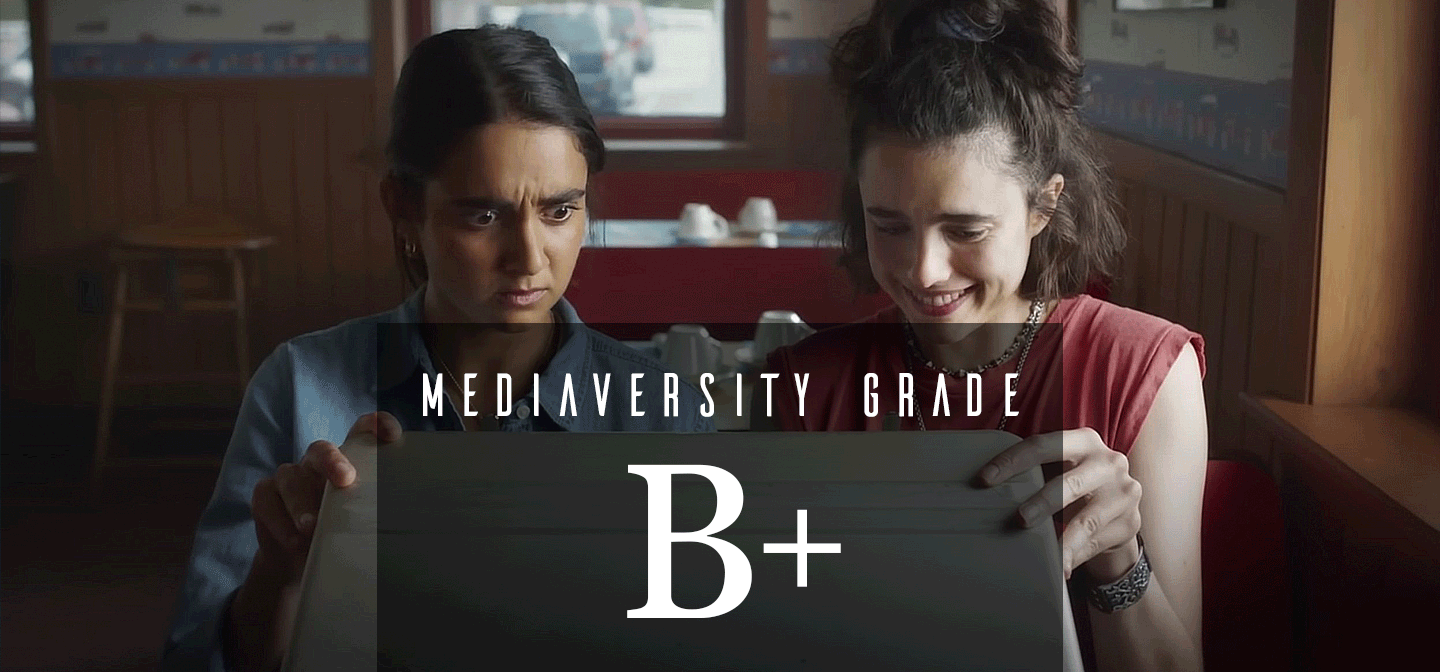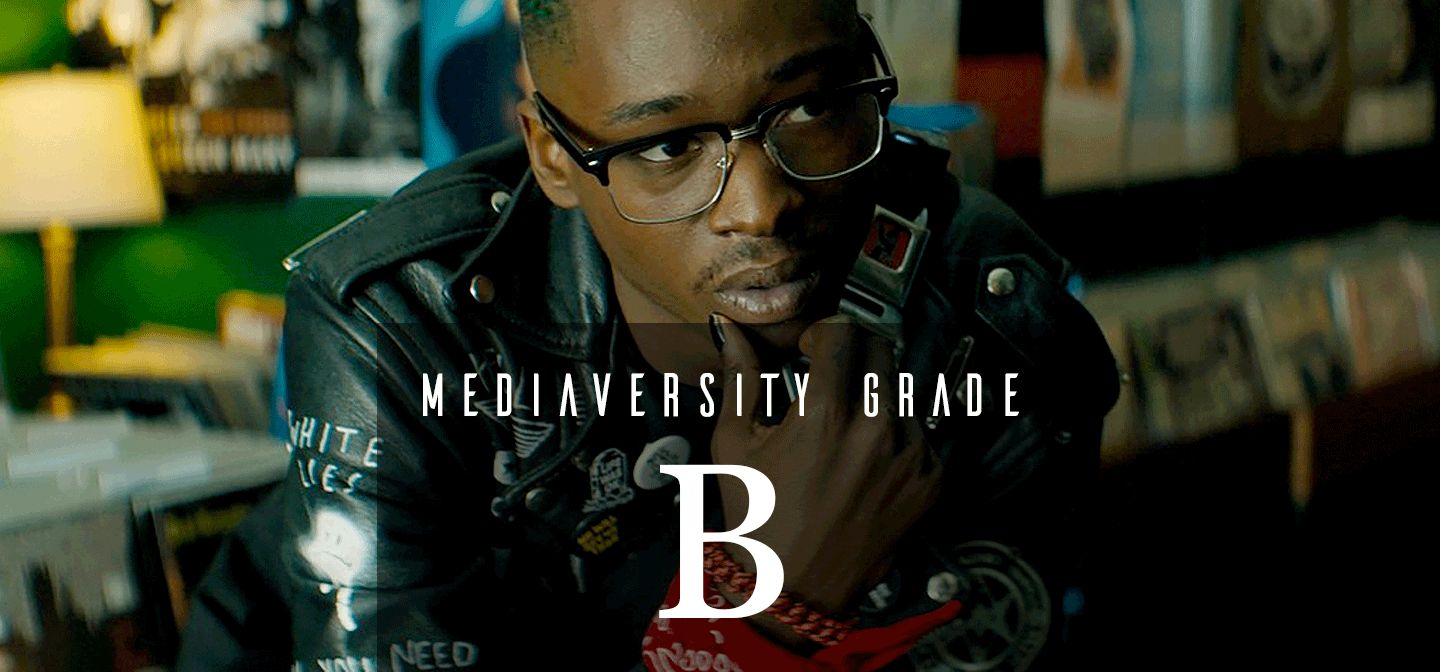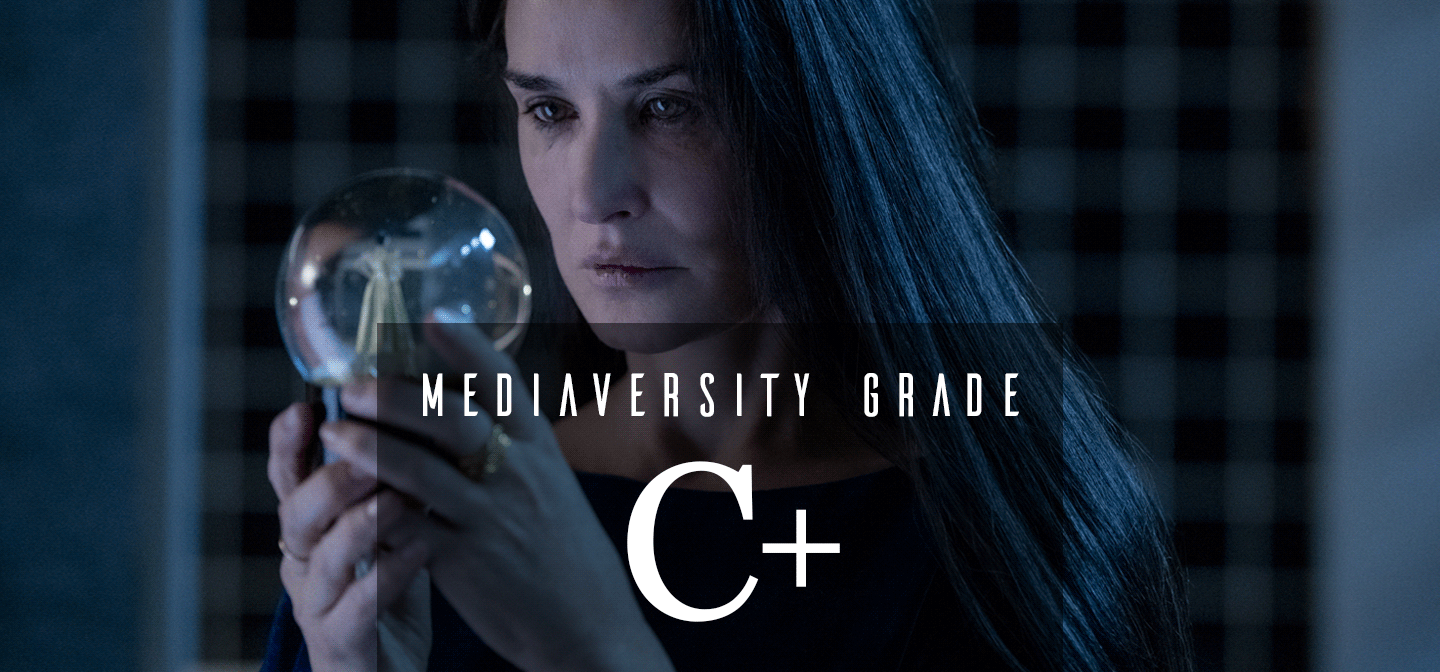Blue Moon
“No matter how sharply Margaret Qualley plays Blue Moon’s blond bombshell, there’s no fixing a script that spends most of its time objectifying her.”
Title: Blue Moon (2025)
Director: Richard Linklater 👨🏼🇺🇸
Writer: Robert Kaplow 👨🏼🇺🇸
Reviewed by Li 👩🏻🇺🇸
Technical: 2.75/5
You’d be forgiven for thinking that Richard Linklater’s Blue Moon, following Ethan Hawke as famed lyricist Lorenz Hart (“My Funny Valentine,” “Manhattan”), was based on a play. The modest production takes place almost entirely inside Sardi’s, a landmark restaurant in New York’s theater district. The script is anchored by nearly unbroken streams of talking: manic monologues by Lorenz, a seductive story by Lorenz’s protégée, Elizabeth (Margaret Qualley), and everyman banter by bartender Eddie (Bobby Cannavale). All that’s missing from this becoming an actual stage play is the sound of someone clearing their throat a few rows back.
Thankfully, the dialogue is generally interesting. Writer Robert Kaplow capably paints a picture of a talented man clutching at greatness, even as he shoots himself in the foot by drinking himself under the table. Hart’s addiction to alcohol ultimately causes his early demise, as the first scene of Blue Moon shows us.
Inside Sardi’s, luxurious interiors—red leather banquettes, smoke-filled rooms, and an intimate coat closet—add to the enchantment spelled by clever lines and self-important declarations. (“And that is the hallmark of great art: levitation.”) But take a step back and the ephemera blows away. All that’s left is yet another navel-gazing biopic about a washed up genius who, as always, is a white guy we’re meant to feel a way about. He’s hangdog and sad; he’s brilliant but passed over for XYZ reason (disability, addiction, likes men—all of the above?). He simply burned too bright!
Hawke could be Adrian Brody in The Brutalist (2024); Bradley Cooper in A Star is Born (2018); er, Bradley Cooper in Maestro (2023)—the list goes on. This isn’t a knock on the actors but a complaint about the trope and filmmakers’ inability to choose their “geniuses” with more originality. I’m bored, Blue Moon.
Gender: 1.75/5
Does it pass the Bechdel Test? NOPE
Qualley has a supporting role as Lorenz’s crush, Elizabeth, and she brings nuance to the role. But no matter how sharply she plays the blond bombshell, there’s no fixing a script that spends most of its time objectifying her. Characters talk about her “tits,” ask Lorenz if he’s “fucked” or “screwed” her, and contemplate the color of her bra. Lorenz himself is the worst offender, breathlessly opining about the two freckles on her cheek like he’s about to get off right there with a drink in his hand.
Yes, he’s meant to portray a sweeping, romantic infatuation. But the floral language and intense scrutiny on the body parts of a woman who’s just trying to finish her degree at Yale and find a job in set design doesn’t feel literary to me. Lorenz’s slavering “adoration,” as characters indulgently label it, is predatory. He’s 47 years old to her just-turned-20 (“Her youth!” Lorenz gasps) and he’s her mentor who’s promised to introduce her to people at Sardi’s. Blue Moon falls so far from the equal footing Linklater put Julie Delpy on, also co-starring Hawke, in the actually-riveting Before trilogy. Just let a woman be a real human being instead of a hypersexualized object of fascination, and the deserved accolades will roll in.
Race: 1.5/5
Cannavale, who has a significant role as the film’s bartender, is half Cuban. But his character, Eddie, is white-passing, and there are no other characters of color. It’s a small cast and the story doesn’t call for it, but it’s notable that a quarter of the people living around Times Square in 1943 were foreign-born. None of that immigrant diversity comes up during the film.
Bonus for LGBTQ: +0.25
Lorenz is queer, calling himself “ambisexual,” and makes some snarky comments about being a “cocksucker.” Nobody pays his sexuality any mind, and it’s nice to watch a queer character’s story unfold without it overtaking the plot.
Deduction for Religion: -0.25
It’s not a huge deal that Hawke (straight) plays Lorenz (queer) when, in the same film, gay actor Andrew Scott plays straight character Richard Rodgers—and won Best Supporting Performance at Berlin International Film Festival for the role. When the power dynamics of who’s playing what evens out, there’s nothing to critique.
But the trend of non-Jewish actors playing beloved Jewish icons feels a little stickier. In Maestro, Cooper took on the role of Jewish conductor Bernstein, controversially donning a prosthetic schnoz for the part. The same year also saw Jewish theoretical physicists Robert J. Oppenheimer and Albert Einstein played by gentiles in Oppenheimer.
In Blue Moon, three famous Jews are central to the narrative: Hart, Rodgers, and Oscar Hammerstein II (Simon Delaney). They’re all played and directed by non-Jews. But unlike Maestro or Oppenheimer, Blue Moon is at least written by Jewish screenwriter Kaplow. And Lorenz and Richards’ Jewish backgrounds come up a couple of times during brief but welcome references.
Mediaversity Grade: D 2.00/5
Blue Moon is a slickly produced film that uses the tired trope of pillaging the incredible stories of marginalized people as acted by straight white gentiles who are then predictably lauded for their performances. Can someone make another Tár (2022), please?




